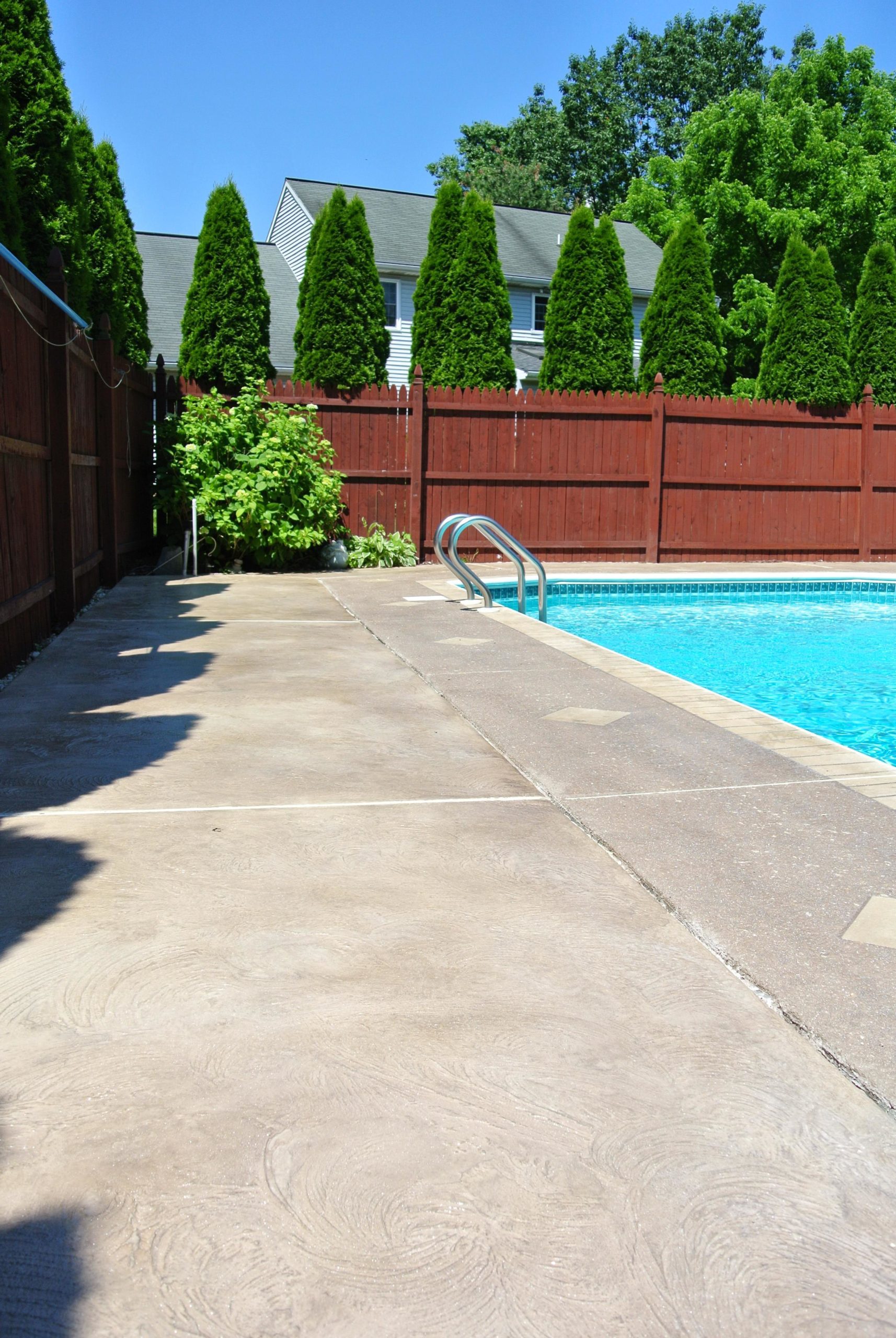Concrete Sealers Mentioned in This Article:
- Dekgard—solvent-based exterior concrete sealer
- Perdure A03—water-based acrylic concrete sealer
- Perdure P72—polyaspartic concrete sealer
Meeting Client Expectations
All contractors know that periodically cleaning and resealing exterior concrete is proper maintenance for concrete in good condition. And all contractors know that sometimes clients have unrealistic expectations when requesting a project such as sealing exterior concrete.
Resealing concrete too often will eventually create problems and may alter the look of the original concrete, and some clients expect that resealing their concrete will fix existing problems with the concrete itself.
If the client is hoping for a new-looking surface and their concrete is in sub-par condition, don’t immediately move forward with their request to reseal the concrete. Converse with your client. Inform them that resealing their exterior concrete won’t fix damage due to wear, impact, or poor installation. It also won’t fix flaking, chipping, or delamination. The concrete will appear nicer for a while, but whatever was wrong will still be wrong.

Working with demanding clients.
If you know that what the client is asking for is impossible, be honest with them. Tell them so, and then give them other options to accomplish their ask. You’ll find that most clients will appreciate your knowledge, expertise, and honesty.
Going ahead with a job you know will fail is an easy way to go out of business. If the floor doesn’t meet the client’s satisfaction, you may not be paid, and you may receive bad reviews online and off. One bad review is all it takes to lose business.
Guide your client towards a successful project outcome.
If you know resealing won’t provide the result your client expects, inform your client of other concrete repair solutions. There may even be a more cost-effective way to restore the concrete.
For example, suppose the client really wants a shiny new surface. In that scenario, a sealer rejuvenator or penetrating sealer might be a suitable way to breathe life into the existing sealer.
On the flip side, if the concrete is damaged and its surface has become weak, brittle, or spalled, it may require a micro-topping or concrete overlay to be applied first.
Whatever the case, always be honest with your client. Even if it means losing their business this time around. If someone else does an inexpensive, shotty job for them in the future, they may come back to you to fix it.
Solvent-based vs. water-based acrylic sealers.
When concrete resealing is the appropriate solution for the project, you’ll have to decide what type of sealer to use—solvent-based or water-based. The choice comes down to which will adhere better, form a stronger seal, the condition of the concrete, and the environment in which the installation is taking place.
If you have a solution that works for you, stick with it. If not, we highly recommend Duraamen’s Dekgard solvent-based concrete sealer, Perdure A03 water-based acrylic sealer, or Perdure P72 polyaspartic sealer.
Dekguard is a non-yellowing, low gloss, modified methyl methacrylate (MMA) sealer for exterior concrete surfaces. Dekguard provides superior resistance to de-icing salts, saltwater pool systems, rain, sleet, and snow as compared to other sealer brands.
In general solvent-based sealers have a significant advantage in two crucial areas, adhesion, and strength. That’s because solvent-based sealers liquefy the existing concrete coating, enabling the new seal to meld firmly to the surface. It takes about 60–90 seconds for the new sealer to completely liquefy the old coating. Roll the sealer firmly into the surface. Take your time to make sure the new sealer is bonding correctly.
Water-based sealers work better on virgin concrete that has never been sealed. They are less toxic, so they can be used in areas where people will be present.
Duraamen’s Perdure A03 is a water-based acrylic sealer that creates a clear, non-yellowing protective coating over new or virgin exterior concrete. A03 is UV and abrasion-resistant and, all-importantly, protects the concrete from moisture. You won’t have to worry about the concrete flaking or cracking due to frozen moisture in the winter months.
Another option is Duraamen’s Perdure P72. Perdure P72 is a new generation fast-curing, polyaspartic sealer for interior or exterior use. It is easy to apply and outperforms polyurethane sealers over concrete or resinous flooring systems.
Ensuring a job is well done.
When resealing a concrete surface, try to ascertain the condition of the floor as best as you can. If unsure about the type or amount of sealer covering a floor, strip the existing sealer to eliminate the risk of project failure. Remember, poor sealer adhesion can be caused by dirt on the surface or too many layers of old sealer.
You may call Duraamen Engineered Products for technical support and information about our line of professional concrete sealers. (866) 835 6595.



